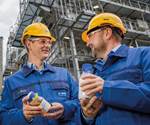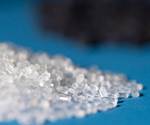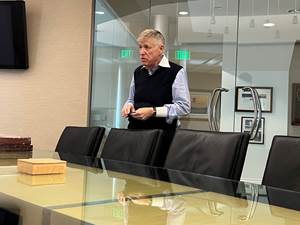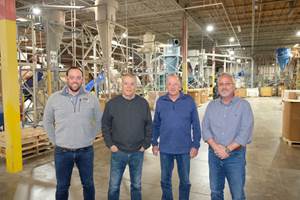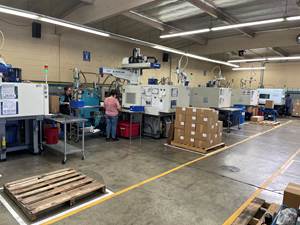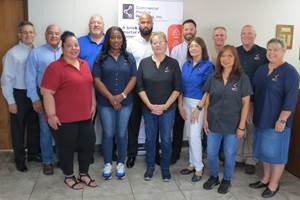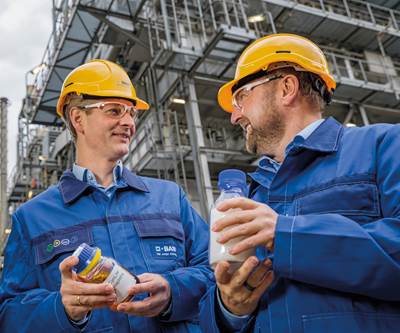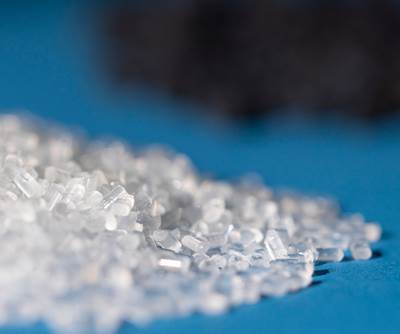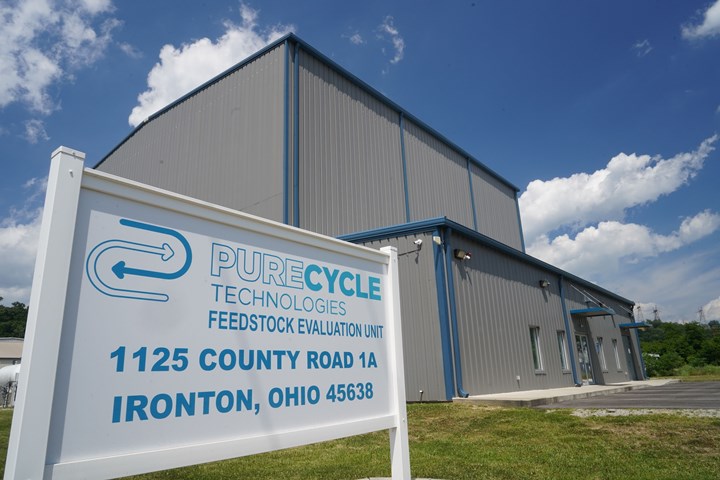
PureCycle Feedstock Evaluation Unit (FEU) in Ironton, Ohio.
Polypropylene (PP) is a popular material of choice for many different kinds of applications. However, its recycling story is still very much a work in progress. Only about 1% of the 170 billion lb of PP consumed last year was recycled, compared with almost 20% for PET, according to the American Chemistry Council (ACC). The Recycling Partnership’s 2020 State of Curbside Recycling report says there may be as much as 1.6 billion lb of PP available per year from single-family homes that could be recycled into new products ranging from automotive parts to personal-care and food packaging.
“The thing about polypropylene that makes it a beauty and a curse is that it's so diverse,” says Dustin Olson, chief manufacturing officer for PureCycle Technologies, based in Orlando, Fla. “It's so adaptable. You can use polypropylene in so many different applications, which makes it a good feedstock for just about everything. But one of the reasons that polypropylene is not consumed more in the recycling world is because it's not consistent. It's all different colors and has various properties.”
Olson says that, historically, when you talked about scaling up PP recycling, it required picking through the PP to find the exact type you need in order to recycle it. This need for selective recycling is why the current rate is only 1%.--or it simply isn’t recycled at all.
Clearly, this is a huge challenge. But PureCycle believes the company’s proprietary technology will change the PP recycling market for good.
Solvent-Based Technology
The company holds a global license to commercialize the only patented solvent-based purification recycling technology, developed by Procter & Gamble (P&G) for restoring waste PP into what PureCycle calls “virgin-like” resin. The proprietary process removes color, odor and other contaminants from recycled feedstock, resulting in recycled resin suitable for any PP market.
Formed in 2015, PureCycle says it is the first company to focus solely on recycling and reintegrating PP into consumer products. “If you want to crack the nut on polypropylene, you've got to do something different,” Olson says. “And this is the core to PureCycle’s technology—we are going at this a completely different way than anyone else. It's not mechanical recycling. It's not chemical recycling; it's solvent-based recycling, which means that we take a solvent, and we selectively wash away all the contaminants from the molecule, and we leave the molecule intact.”
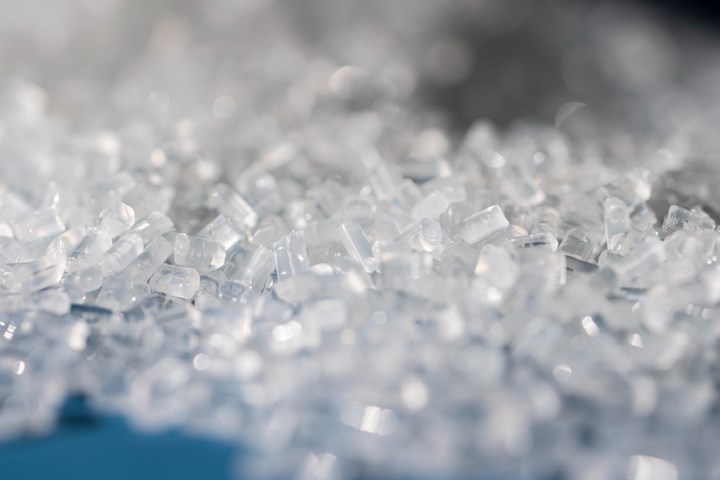
PureCycle’s proprietary process removes color, odor, and other contaminants from recycled feedstock, resulting in what the company calls “virgin-like” polypropylene suitable for any PP market.
The development of the technology began when P&G was looking for more ways to incorporate additional recycled content into its applications, specifically targeting PP. With limited amounts of recycled PP available, P&G set out to develop its own process to purify waste PP.
“It's not mechanical recycling. It's not chemical recycling. It's solvent-based recycling.”
Olson said that since P&G isn’t a chemical producer, it made more sense to partner with an outside company that could continue working on the technology and eventually commercialize it. P&G had an established relationship with a company called Innventure, an investment firm that eventually became the parent company of PureCycle. P&G licensed its technology to PureCycle.
One of the first big steps was in 2019, when PureCycle announced it had successfully purified waste carpet from its Feedstock Evaluation Unit (FEU) in Ironton, Ohio, transforming discarded carpet into clear, odorless, Ultra-Pure Recycled Polypropylene (UPRP) resin.
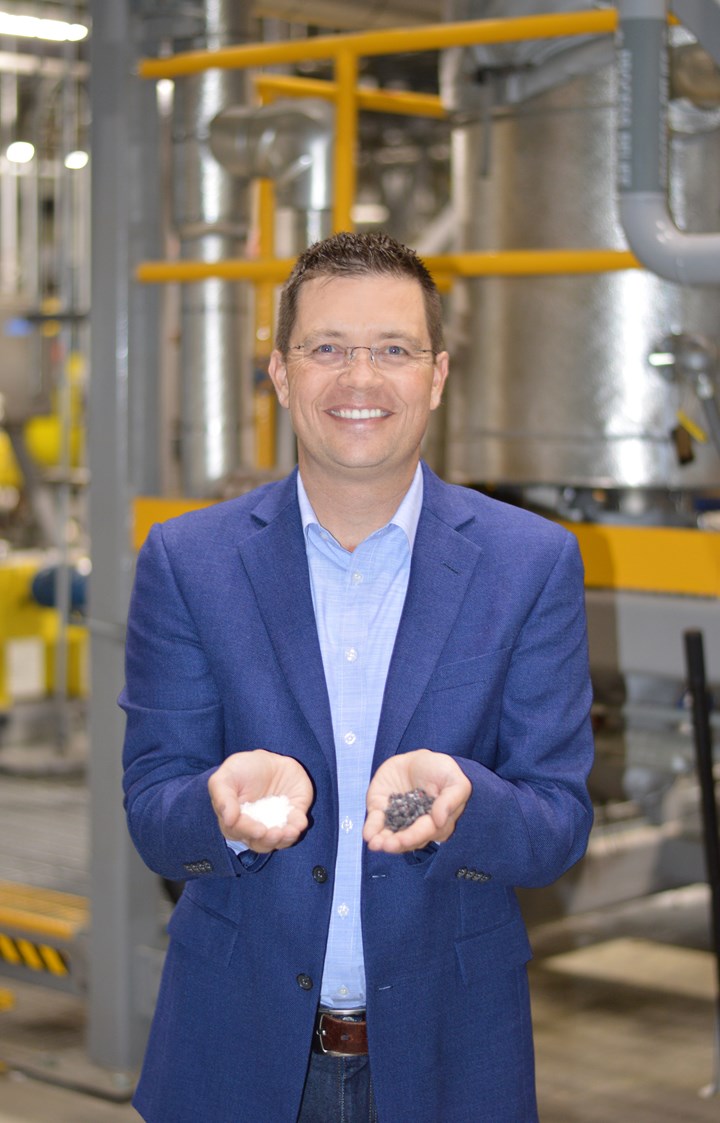
Dustin Olson, chief manufacturing officer for PureCycle Technologies, holding PureCycle's product as he stands in the Feedstock Evaluation Unit (FEU).
“The feedstock evaluation is really a critical proof-of-concept step for us for two reasons,” Olson says. “One, it proves that the great invention on paper actually works in the real world – the proof is in the pellets we make every day. And the second thing it did is show that we can run all sorts of different feeds, and the process is really robust. We've tested over 100 different feedstocks. And when I say tested, I mean tested and validated.”
The company takes any form of PP—film, fiber and rigids—and puts it through its process to clean it and eventually put it back out in the marketplace, including food-grade applications.
When describing the technology, without giving away trade secrets, Olson says what they do is wash out colors, odors and other additives that are put into PP to give it various properties. Essentially the PP bales go through extraction, filtration and then the processing stage. The final product consists of UPRP clear pellets.
“Polypropylene recycling is broken, it can't be done at scale with the traditional methods right now, otherwise, somebody would have done it.”
PureCycle is building a commercial-scale recycling plant in Ironton, Ohio, which is scheduled to be up and running by the fourth quarter of 2022. The plant is expected to produce more than 105 million lb of recycled PP per year.
While Olson declines to name all the equipment his firm uses, he says they did not have to invent any new equipment to do what they needed to build this project. But that’s not to say they haven’t made slight modifications to existing equipment.
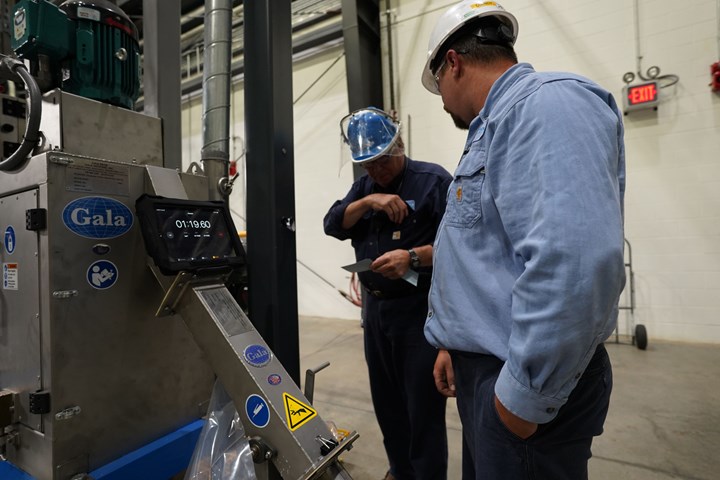
At the Feedstock Evaluation Unit, the company has tested and validated over 100 different PP feedstocks using its solvent purification technology.
“We just had to choose the right things to put it together in the right way, and run the right conditions to do what we need to do,” he says. “One question I get quite a bit is, ‘How confident are you that the equipment is going to be able to do what you need it to?’ Well, first of all, we have a plant running. So, as far as proof of concept—‘do you think it's going to work?’—yeah, because it's working.”
Olson adds, “Polypropylene recycling is broken, it can't be done at scale with the traditional methods right now, otherwise, somebody would have done it. It's either not capable from a technology perspective, or it's not sustainable from an economic perspective.
“So we have to go at it a different way. And I think that our technology is a difference maker. It gives us the flexibility to choose from a massive slate and scale of feedstocks. And then at the end of the day, we don't make a slightly gray or a black compound. With PureCycle, you end up with pure product.”
Partnerships Multiply
Olson emphasizes that collaboration is key in order to move the circular economy forward. PureCycle’s partnerships include Milliken & Co., where PureCycle will use its additives in the recycled product. Total, the French energy company and plastics producer, has agreed to purchase part of the output of PureCycle Technologies’ future U.S. facility and to assess the interest in developing a new plant together in Europe. Nestlé S.A. is working with PureCycle to develop new packaging. L’Oréal agreed to take a portion of the output of the Ohio plant’s capacity, and also has the option to be among the first purchasers of volume from PureCycle’s first future plant in Europe.
“We recognize that we're a piece of the puzzle. We're not the entire puzzle,” Olson says. “Collaboration is going to drive the solution to the problem— it's not going to be a one-company show; it's going to be a collaborative effort to solve the problem. We believe we have a technology that's transformative; we believe we have a thing that no one else can do; and we think that will make a big change in the overall global market. We just want to play our role to help make the world a better place.”
“Collaboration is going to drive the solution to the problem— it's not going to be a one-company show.”
Olson says that the company has plans to scale and grow quickly. Right now, they’re planning out where to locate a second plant in the U.S.
Related Content
US Merchants Makes its Mark in Injection Molding
In less than a decade in injection molding, US Merchants has acquired hundreds of machines spread across facilities in California, Texas, Virginia and Arizona, with even more growth coming.
Read MoreEvolving Opportunities for Ambitious Plastics Recycler
St. Joseph Plastics grew from a simple grinding operation and now pursues growing markets in recycled PP, food-grade recycled materials, and customized post-industrial and post-consumer compounds.
Read MoreBack in the Family Business
In its 45th year, Precision Molded Plastics has carved out a technology and market niche, growing not just when opportunities arise but when they make sense, after its leader changed careers to keep the family business from changing hands.
Read MoreInside the Florida Recycler Taking on NPE’s 100% Scrap Reuse Goal
Hundreds of tons of demonstration products will be created this week. Commercial Plastics Recycling is striving to recycle ALL of it.
Read MoreRead Next
Recycling: Expanding 'Circularity' through Advanced Recycling Technologies
Recycling and achieving circularity for materials is at the core of the plastics industry’s evolving sustainable business model. Advanced technologies will play a big role.
Read MorePLASTICS Names Winners of the 2020 Re|focus Leadership and People’s Choice Awards
PureCycle takes the Leadership in Innovation Award while Accredo Packaging wins the People's Choice Award.
Read MoreFor PLASTICS' CEO Seaholm, NPE to Shine Light on Sustainability Successes
With advocacy, communication and sustainability as three main pillars, Seaholm leads a trade association to NPE that ‘is more active today than we have ever been.’
Read More


